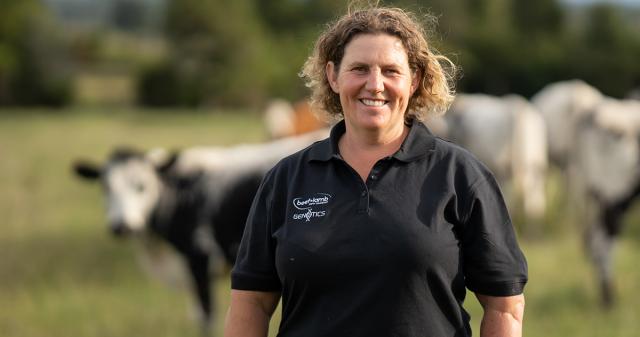Ten more commercial beef farmers have been selected to take part in the ground-breaking Informing New Zealand Beef (INZB) programme to help drive the uptake of genetics in the industry.

The seven-year INZB partnership, supported by Beef + Lamb New Zealand and the Ministry for Primary Industries’ Sustainable Food and Fibre Futures fund, aims to boost the sector’s profits by $460m.
Focused on increasing the use of high-quality genetics in the beef industry, the four main components of the programme are developing New Zealand-specific breeding indexes, supporting the development of an across breed genetic evaluation and development of data infrastructure, running a beef progeny test and linking in data from commercial herds.
The INZB programme reached a key milestone in March with the launch of nProve Beef, a powerful online genetics tool to help farmers select the best bulls for their farm business.
“With a further 10 farm businesses from across the North and South islands, we now have 47 farms in the programme,” says Sonya Shaw, project lead, commercial herds, for the programme.
“Commercial farms are an important part of the programme, as they provide increased linkages throughout the beef industry and contribute to genetic evaluations through recording data and incorporation of data into breeding value prediction.
“Ultimately this will increase the accuracy with which breeding values, or genetic merit, can be estimated.
“The INZB programme is helping commercial farmers understand the value of better genetics and offering them the opportunity to easily select the right genetics for their system to drive greater profitability on their farms.”
The 10 new farmers are from Marlborough, Otago, Manawatu-Whanganui, Hawke’s Bay, Wellington, Waikato and Northland.
The herds represented include Angus, South Devon, Angus x Charolais x Simmental and composite cattle.
“Participating in the programme also helps the farmers to achieve more accurate heifer selection in their herds, which will have a lasting impact on these commercial herds’ progress,” says Shaw.
“The commercial farmers provide the programme with accurate pedigree recording, assessing bull teams’ performances, ensuring accurate information for heifer replacement selection and work with their bull breeders to make more rapid genetic progress.
“The farmers adopt a recording schedule across the year and can also, if they wish, carry out genotyping of their cow herd and, on an annual basis, calves and sires.
“They are also able to benchmark their herd against others involved in the programme.”
This will be the final intake of commercial farmers to the INZB programme, says Shaw.
For more information, please contact:
- Sam Halstead on 027 474 6065 or sam@latitudesc.co.nz